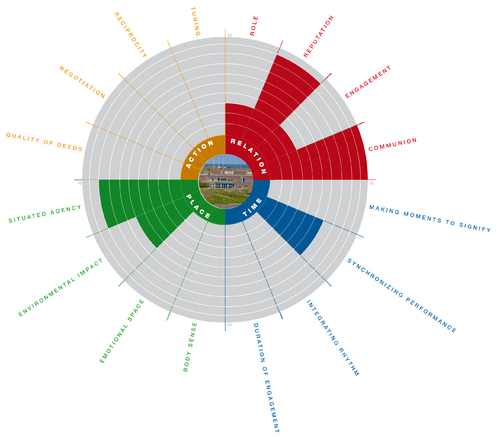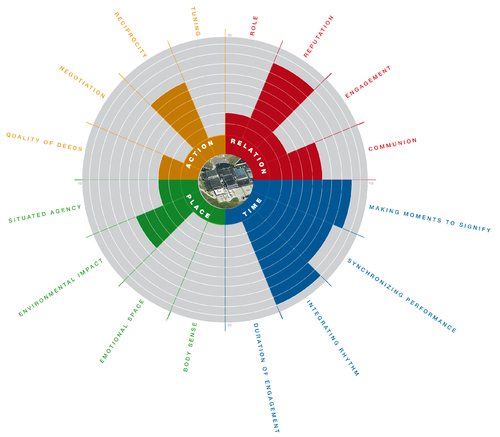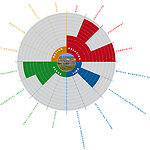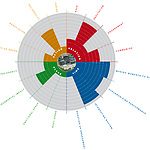Technology for aquaculture
Research for creating optimal conditions for aquaponics is still on-ongoing. This also makes it hard to estimate how much fish and nutrition is needed to keep the eco-system in balance. It also depends on the types of fish and types of plants. Therefore it is hard to make a technology roadmap from 2020 to 2065. Texel is known for its research on marine life. This aquaculture facility could be an expansion of current research institutions on Texel.
Actor analysis
Introduction of NIOZ
NIOZ is an oceanographic institute for the Netherlands. Its mission is to obtain and distribute knowledge about seas and oceans for a sustainable future for our planet. It supports research and education to marine science in the Netherlands and Europe (NIOZ, 2014).
Currently NIOZ does no research to aquaponics. However in 2013 it cooperated with the University of Maastricht, Wagening, Utrecht and the research institute Carmabi on Curacao to analyze the role of sponges for reusing waste of coral and algae. As stated in the article, this research was important to understand the coral reef and how an ecosystem can be productive without energy loss. It was an important step for the evolution of sustainable forms of aquaculture and sea farming (NIOZ, 2013).
Recently NIOZ opened the Seaweed center, where different types of seaweed are analyzed since seaweed can be used as source of energy (sugars) and food for humans/animals. Cultivation of seaweed can contribute to the transition of a bio based economy (NIOZ, 2014).
Aquaponics is about creating a sustainable eco-system for food production, were plants and fish are being cultivated. Analyzing sea life and mimicking this in aquaponics could be a solution to find sustainable food production. Using the research of the seaweed center can contribute to create a better aquaponics system. It is therefore likely that NIOZ might be interested in starting an aquaponics project in cooperation with partners. The bio-digester can be used directly to provide nutrition for the growth of seaweed.
YUPTA analysis of NIOZ
NIOZ needs to cooperate with other partners. Since they can also depend on partners there role and engagement is been given a three. Since NIOZ is the oceanographic institute for the Netherlands it has to keep its reputation high. It is highly likely that NIOZ and all partners have the same goal: Obtaining knowledge and distributing knowledge about seas and oceans for a sustainable future for our planet.
Working with partners asks for synchronizing performance. Each partner has to exchange knowledge in order to work together effectively. NIOZ can mean a lot to the other stakeholders, since they have a lot of knowledge on the sea and oceans ecosystems, which can be used in aquaponics. Situated agency is therefore estimated high.
Introduction of Ecomare
Ecomare stands for keeping and recovering natural values in the ‘Wadden’ and Nord sea. Through education and creating awareness they try to protect the natural habitat. An aquaponics center could educate visitors on aquaculture and natural eco-systems, making it interesting for Ecomare to start an aquaponics center. Since Ecomare is not a research institute it should cooperate with researchers to create optimal conditions for aquaponics.
YUPTA analysis of Ecomare
Ecomare can offer an aquaponics facility for research purposes to other institutes, while at the same time using this facility as a tourist attraction. Although the goal of the research institutes might be obtaining knowledge, Ecomare wants to distribute this knowledge, which makes the goals comparable. Since the facility will become a tourist attraction in this case, making moments to signify scores high. Ecomare needs to synchronize performances with the research institutes to create effective relationships. Rhythms need to be integrated by setting clear rules on when the facility is open for visiting hours and when it is closed so research institutes can do their research.



